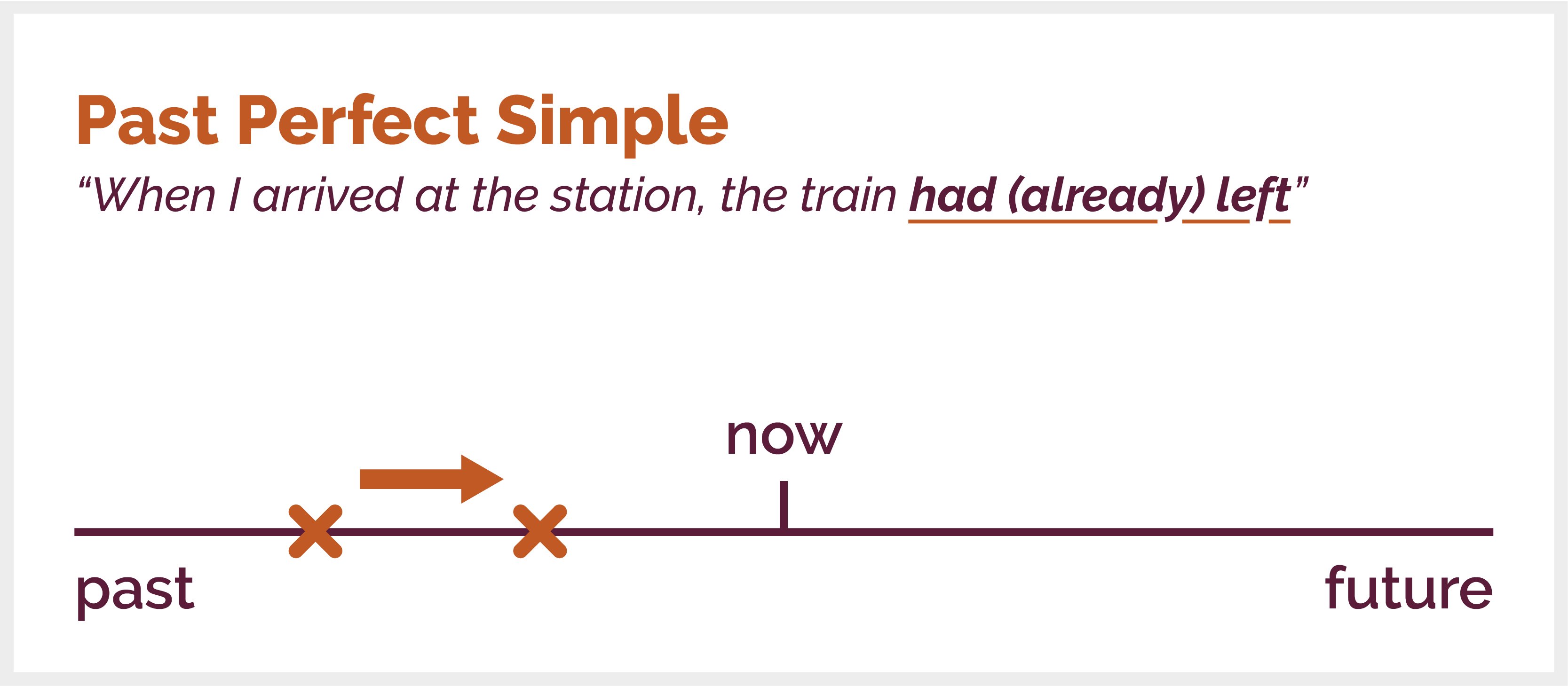VOCABULARY
The articles and videos in Speak for Yourself #8 presented a range of adjectives and verb phrases that are useful for the learner to develop their vocabulary. Download our Speak Resource with all of the most useful vocabulary here:
GRAMMAR
The Past Perfect Simple tense in English is not so difficult for Italian learners of English because it generally corresponds well in translation. Don't be scared by the fact that it is a "perfect" tense - the Present Perfect is much more difficult, as we discussed in a recent Speak blog: LANGUAGE FOCUS | Il Present Perfect Simple.
The basic construction for creating the Past Perfect is:
Had + Past Participle
The Past Perfect is quite easy to understand. The main sense of this tense is to explain the relationship between two events, one which happened before another but both are in the past.
The classic example of Past Perfect for learners is this:
When I arrived at the station, the train had (already) left.
Quando arrivai alla stazione, il treno era già partito.
This means that I was late and missed the train. But in chronological order, which event happened first?:
1) First, the train left
2) Then, I arrived in the station (late)
Result = I missed the train!

We often use the adverb "already" ("già") with Past Perfect to explain that something happened before we expected.
So, when use the Past Perfect (had left), it is because the action happened before another action in the past.
Now, to understand better the reference to time, look at these 2 sentences:
1. Sophie had cooked breakfast when we got up.
Quando ci svegliammo Sofia aveva già preparato la colazione.
2. Sophie cooked breakfast when we got up.
Quando ci svegliammo Sofia preparò la colazione.
In the first sentence, the past perfect tells us that Sophie cooked breakfast before we got up. In the second sentence, first we got up and then Sophie cooked breakfast.

Now look at these two modified examples of the Past Perfect from the popcorn article in the Read section of Speak for Yourself #8:
1. "In the mid 1800s popcorn was a popular snack food, but the cinema hadn’t been invented yet"
"A metà del 1800 i popcorn erano uno snack molto popolare, ma il cinema non era ancora stato inventato"
2. "In the early 1900s going to the cinema was more common, but popcorn hadn’t become part of that culture yet"
"Agli inizi del 1900 andare al cinema era molto diffuso, ma i popcorn non erano ancora diventati parte di quella cultura"
The Past Perfect is used here because one thing happened (or didn't happen) before another.
Be careful with the Past Perfect when you want to say something in the distant past.
For example we do not say:
The Second World War had broken out in 1939
The correct phrase is:
The Second World War broke out in 1939 (Past Simple)
This is because it only describes one single past event - not one past event before another past event.
So, we only use the Past Perfect when we want to refer to the relationship between one past event which happens before another past event.










